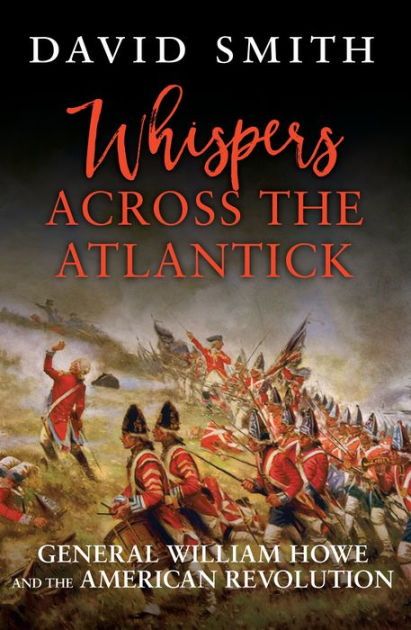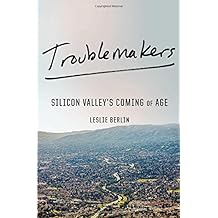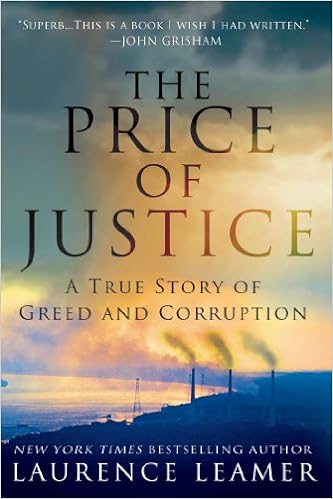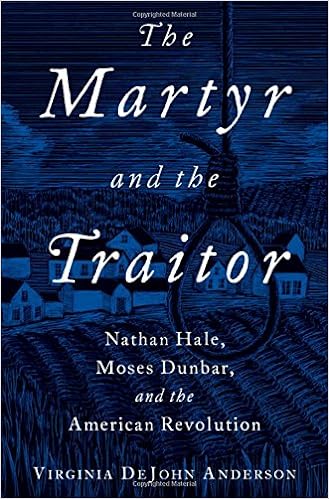Aviendha and Egwene would be fine, but I think that Lanfear and the First of Mayene would be even better, if Jordan's descriptions are to be believed. The casting for this, if it ever comes to fruition, will be interesting.I'm on book six right now. I started around August this past year. I just started book six about a week ago. I listen with Audible versions. I have two hours in the car every day to listen. One hour commute each way to and from work.
I agree about going to television. I would hope that it goes a similar route as GOT and is put on pay TV like HBO or Showtime. It would get too watered down to be on network television. I want to see Aviendha and Egwene running naked.And all of the scantily clad Aiel. Plus many of the scenes would require quite an animation budget. That wouldn't work for a network TV series.
Colleges
- American Athletic
- Atlantic Coast
- Big 12
- Big East
- Big Ten
- Colonial
- Conference USA
- Independents (FBS)
- Junior College
- Mountain West
- Northeast
- Pac-12
- Patriot League
- Pioneer League
- Southeastern
- Sun Belt
- Army
- Charlotte
- East Carolina
- Florida Atlantic
- Memphis
- Navy
- North Texas
- Rice
- South Florida
- Temple
- Tulane
- Tulsa
- UAB
- UTSA
- Boston College
- California
- Clemson
- Duke
- Florida State
- Georgia Tech
- Louisville
- Miami (FL)
- North Carolina
- North Carolina State
- Pittsburgh
- Southern Methodist
- Stanford
- Syracuse
- Virginia
- Virginia Tech
- Wake Forest
- Arizona
- Arizona State
- Baylor
- Brigham Young
- Cincinnati
- Colorado
- Houston
- Iowa State
- Kansas
- Kansas State
- Oklahoma State
- TCU
- Texas Tech
- UCF
- Utah
- West Virginia
- Illinois
- Indiana
- Iowa
- Maryland
- Michigan
- Michigan State
- Minnesota
- Nebraska
- Northwestern
- Ohio State
- Oregon
- Penn State
- Purdue
- Rutgers
- UCLA
- USC
- Washington
- Wisconsin
High Schools
- Illinois HS Sports
- Indiana HS Sports
- Iowa HS Sports
- Kansas HS Sports
- Michigan HS Sports
- Minnesota HS Sports
- Missouri HS Sports
- Nebraska HS Sports
- Oklahoma HS Sports
- Texas HS Hoops
- Texas HS Sports
- Wisconsin HS Sports
- Cincinnati HS Sports
- Delaware
- Maryland HS Sports
- New Jersey HS Hoops
- New Jersey HS Sports
- NYC HS Hoops
- Ohio HS Sports
- Pennsylvania HS Sports
- Virginia HS Sports
- West Virginia HS Sports
ADVERTISEMENT
You are using an out of date browser. It may not display this or other websites correctly.
You should upgrade or use an alternative browser.
You should upgrade or use an alternative browser.
What book(s) are you currently reading?
- Thread starter john4psu
- Start date
My brother left "Ready Player One" here when he visited over the holidays. I've picked it up and started reading it. As an 80's kid, it has a lot of references to 80's pop culture, so it gives you that nice nostalgic feeling.
Reading Grant now, about 2/3rds of the way through. Read Goon Squad several years ago. Egan has an interesting writing style.Grant by Ron Chernow
How To Survive a Plague about the early days of AIDs
A Visit From the Goon Squad by Jennifer Egan (furthest along in this; it's outstanding)
I enjoy his books but they are not as good as they were before IV got involved. Though the last one wasn't bad: Death at Nuremburg.W.E.B. Griffin Badge of Honor Book XIII Broken Trust
It is worth going to see the battlefield if you are in New Orleans. Gives you a greater appreciation for the battle.Obsidian Chamber by Preston and Child.
Just finished Killing England by OReilly and Andrew Jackson Miracle at New Orleans. Really enjoyed that one.
Well, in past few weeks I read:
1. The Invasion of Virginia 1781
by Michael Cecere

It was pretty good. Most books that examine the Rev War in Virginia in 1781 focus on Yorktown (for good reason). This book looks at Bendict Arnold's landing British troops in the Tidewater area, and what took place with them, the militia that battled them, the government of Virginia in Richmond, the governor (Thomas Jefferson) in Richmond, etc. (Cornwallis moved his large force to join up with Arnold's smaller group, and ultimately Cornwallis surrendered to Washington at Yorktown, but that's not really examined by Cecere.) It's a book that focuses on a small theatre of the Rev War, but brings a lot of detail to the examination. I enjoyed it. It's hard to say if non-Rev War junkies would enjoy the book as much as I did -- probably not, but it's well written, and not very long in length, so it should keep your interest.
2. Whispers Across The Atlantick: General William Howe and the American Revolution
by David Smith

This book was excellent. Gen. Howe was the leader of the British forces in America in 1776 and 1777*. Britain had assembled the largest force in their history to handle the revolution. Howe initial battle was in Brooklyn, where he routed the American forces. (As in most large battles where Gen. Washington faced the British, he did a poor job of defending the flank.) Howe did not press the advantage at the end of the battle, or the next day, and the Americans were able to slip away to Manhattan. For the rest of 1776, the British defeated the Americans in a series of battles, yet Howe did not seem to aggressively utilize his superiority in numbers, arms, or naval vessels. The patriots got their first victories at the end of the year, in the surprise attack on Trenton and the subsequent attack on Princeton.
Howe's hesitancy continued in 1777, where he decided not to march up the North River (now called the Hudson), to link up with Burgoyne's troops coming south from Canada. Had the two British forces linked up, they would have basically cut the rebellious colonies in half, and eliminated most means of communication, troop movement, supplies by the French, etc. between the New England colonies and the rest of the colonies. Instead of joining up with Burgoyne, Howe decided to take Philadelphia. He had boats built that could fit on carriages for the trek, but would be used to ferry the troops and supplies across the Delaware. After dithering in New Jersey, and some limited patriot attacks, Howe changed course and decided to go by boat to take Philadelphia. The trip took far longer than anticipated, and when they got to Delaware Bay they met with the commander of a British boat patrolling the mouth of the Bay, and then decided to continue on to the Chesapeake Bay. Their limited supplies ran out, the majority of their horses were pushed overboard due to sickness, death, or lack of food. They finally landed in late August, defeated Washington at the Battle of Brandywine (again, mostly due to Washington not adequately protecting his flank), and subsequently took Philadelphia. After the Battle of Germantown, Howe basically shut down the 1777 campaign, took comfort in Philadelphia, and made little to no effort to bother Washington's forces at Valley Forge.
Howe's superiors in Britain (Lord Germain, Lord North, and King George III) grew increasingly exacerbated by Howe's limited activity, and failure to put down the rebellion. Howe offered his resignation in Oct. 1777, and was notified in April 1778 that his offer was accepted.
Since then, there has been endless debate about why Howe did not prosecute the war more vigorously. Reasons offered have included:
1. his respect for Americans who had erected a statue of his older brother in Boston, and thus his belief that if he bloodied their noses just a bit in 1776 they would come to their senses, and give up the rebellion
2. his inability to get along with the first leader of the German troops that augmented the British forces (who didn't speak English, and Howe didn't speak German, and it took several months for them to get somebody to serve as a go-between that spoke both languages)
3. his distrust of his 2nd in command, Gen. Clinton, who constantly wanted to attack, and didn't work well with anyone
4. his enjoying the charms of Mrs. Loring, in NYC and in Philadelphia
5. his general cautiousness
6. the number of casualties forces under his command suffered in his initial efforts in the Rev War, at the Battle of Bunker Hill*
6. etc.
Historians have also been hamstrung by a fire that took place at the Howe estate, which destroyed a lot of Gen. Howe's papers long after the Rev War.
This book examines why Howe failed, and does so through the perspective of the defense Gen. Howe offered in the House of Commons to an inquiry into his efforts/failures/etc. a few years after his resignation. It's the best analysis I've read of Howe's actions/inactions during the Rev War. The book, which came out in 2017, has proved to be very popular with Rev War enthusiasts, and I would highly recommend it to the general public.
* Howe joined the British efforts against the rebellion in 1775, under Gen. Gage at Boston. His most notable involvement was in the Battle of Bunker Hill. He became the Commander-in-Chief of the British Army in America in Oct. 1775.
1. The Invasion of Virginia 1781
by Michael Cecere

It was pretty good. Most books that examine the Rev War in Virginia in 1781 focus on Yorktown (for good reason). This book looks at Bendict Arnold's landing British troops in the Tidewater area, and what took place with them, the militia that battled them, the government of Virginia in Richmond, the governor (Thomas Jefferson) in Richmond, etc. (Cornwallis moved his large force to join up with Arnold's smaller group, and ultimately Cornwallis surrendered to Washington at Yorktown, but that's not really examined by Cecere.) It's a book that focuses on a small theatre of the Rev War, but brings a lot of detail to the examination. I enjoyed it. It's hard to say if non-Rev War junkies would enjoy the book as much as I did -- probably not, but it's well written, and not very long in length, so it should keep your interest.
2. Whispers Across The Atlantick: General William Howe and the American Revolution
by David Smith

This book was excellent. Gen. Howe was the leader of the British forces in America in 1776 and 1777*. Britain had assembled the largest force in their history to handle the revolution. Howe initial battle was in Brooklyn, where he routed the American forces. (As in most large battles where Gen. Washington faced the British, he did a poor job of defending the flank.) Howe did not press the advantage at the end of the battle, or the next day, and the Americans were able to slip away to Manhattan. For the rest of 1776, the British defeated the Americans in a series of battles, yet Howe did not seem to aggressively utilize his superiority in numbers, arms, or naval vessels. The patriots got their first victories at the end of the year, in the surprise attack on Trenton and the subsequent attack on Princeton.
Howe's hesitancy continued in 1777, where he decided not to march up the North River (now called the Hudson), to link up with Burgoyne's troops coming south from Canada. Had the two British forces linked up, they would have basically cut the rebellious colonies in half, and eliminated most means of communication, troop movement, supplies by the French, etc. between the New England colonies and the rest of the colonies. Instead of joining up with Burgoyne, Howe decided to take Philadelphia. He had boats built that could fit on carriages for the trek, but would be used to ferry the troops and supplies across the Delaware. After dithering in New Jersey, and some limited patriot attacks, Howe changed course and decided to go by boat to take Philadelphia. The trip took far longer than anticipated, and when they got to Delaware Bay they met with the commander of a British boat patrolling the mouth of the Bay, and then decided to continue on to the Chesapeake Bay. Their limited supplies ran out, the majority of their horses were pushed overboard due to sickness, death, or lack of food. They finally landed in late August, defeated Washington at the Battle of Brandywine (again, mostly due to Washington not adequately protecting his flank), and subsequently took Philadelphia. After the Battle of Germantown, Howe basically shut down the 1777 campaign, took comfort in Philadelphia, and made little to no effort to bother Washington's forces at Valley Forge.
Howe's superiors in Britain (Lord Germain, Lord North, and King George III) grew increasingly exacerbated by Howe's limited activity, and failure to put down the rebellion. Howe offered his resignation in Oct. 1777, and was notified in April 1778 that his offer was accepted.
Since then, there has been endless debate about why Howe did not prosecute the war more vigorously. Reasons offered have included:
1. his respect for Americans who had erected a statue of his older brother in Boston, and thus his belief that if he bloodied their noses just a bit in 1776 they would come to their senses, and give up the rebellion
2. his inability to get along with the first leader of the German troops that augmented the British forces (who didn't speak English, and Howe didn't speak German, and it took several months for them to get somebody to serve as a go-between that spoke both languages)
3. his distrust of his 2nd in command, Gen. Clinton, who constantly wanted to attack, and didn't work well with anyone
4. his enjoying the charms of Mrs. Loring, in NYC and in Philadelphia
5. his general cautiousness
6. the number of casualties forces under his command suffered in his initial efforts in the Rev War, at the Battle of Bunker Hill*
6. etc.
Historians have also been hamstrung by a fire that took place at the Howe estate, which destroyed a lot of Gen. Howe's papers long after the Rev War.
This book examines why Howe failed, and does so through the perspective of the defense Gen. Howe offered in the House of Commons to an inquiry into his efforts/failures/etc. a few years after his resignation. It's the best analysis I've read of Howe's actions/inactions during the Rev War. The book, which came out in 2017, has proved to be very popular with Rev War enthusiasts, and I would highly recommend it to the general public.
* Howe joined the British efforts against the rebellion in 1775, under Gen. Gage at Boston. His most notable involvement was in the Battle of Bunker Hill. He became the Commander-in-Chief of the British Army in America in Oct. 1775.
Well, Tom, that was one hell of a history lesson. Thanks much.
The author is gonna be pissed.... No sense buying the book nowWell, Tom, that was one hell of a history lesson. Thanks much.
Lol, true dat.The author is gonna be pissed.... No sense buying the book now

What a good book. History is people's stories and Berlin chose her people well; Xerox PARC, Apple (of course), Atari, ASK, Genentech-These fantastic stories start when there were zero personal computers in the world, when there were no software companies, no video games, and no bio-technology. Even the words that would define these industries had not been invented. Every computer user, businessman, manager, and entrepreneur will enjoy the book. It reads quickly. Almost like a serial. You can hardly wait to hear what happens next. Read it. You'll love it!
QUOTE="john4psu, post: 3302087, member: 3530"]

I’m reading When the Lions Roared by Bill Contz. The story of the ’82 Nittany Lions which happened to be my junior year and first year at main campus. I’ve read some stories that I haven’t heard before. I’m up to Sugar Bowl week and can’t wait to find out how we do against Herschel Walker and #1 Georgia in the Sugar Bowl! Who doesn't love a happy ending?[/QUOTE]
Brian Eno Diary and Pete Townshend's auto-bio

I’m reading When the Lions Roared by Bill Contz. The story of the ’82 Nittany Lions which happened to be my junior year and first year at main campus. I’ve read some stories that I haven’t heard before. I’m up to Sugar Bowl week and can’t wait to find out how we do against Herschel Walker and #1 Georgia in the Sugar Bowl! Who doesn't love a happy ending?[/QUOTE]
Brian Eno Diary and Pete Townshend's auto-bio
The author is gonna be pissed.... No sense buying the book now
lol, the review was longer than I had planned. I was interrupted three times while writing it, which I think jumbled my train of thought. that said, I was simply trying to give some background on Gen. Howe as Commander-In-Chief. The book delves into substantially more than I mentioned.
How is the Grant book?Reading Grant now, about 2/3rds of the way through. Read Goon Squad several years ago. Egan has an interesting writing style.
George is getting upset!
I'm reading Hue: 1968 by Mark Bowden
Finished this one. It's a decent amount of background on Vietnam and then a detailed account of the battle during the Tet Offensive (which happened almost exactly 50 years ago). Certainly a change from the jungle warfare up to that point, and a huge turning point in the war, despite being a US 'victory.'
I also went to see him speak at Loyola, his alma mater. He's a great speaker if anyone has a chance they should go. While waiting to get a copy of Hue, I read his book on the 1958 NFL championship. I thought it was good, but could have used more Lenny Moore!
I'm working on this one:

My Uncle Dave was a ball turret gunner in the 343rd ("Snow White") squadron in the 15th and his brother in law, my Uncle Bill, was ground crew (though not at the same base). My Uncle Dave flew at least one mission with CMOH Puckett, who was in the same squadron. He took extra missions to get home earlier--which turned out to be a wise move, as the mission after his last one was over Ploesti and the plane and crew were shot down.
Link

My Uncle Dave was a ball turret gunner in the 343rd ("Snow White") squadron in the 15th and his brother in law, my Uncle Bill, was ground crew (though not at the same base). My Uncle Dave flew at least one mission with CMOH Puckett, who was in the same squadron. He took extra missions to get home earlier--which turned out to be a wise move, as the mission after his last one was over Ploesti and the plane and crew were shot down.
Link
It's excellent. I've previously read numerous books from the revolutionary war era and WWII era, but have not previously read much at all from the civil war era. Chernow is an excellent writer (I previously read his Hamilton bio, which is also excellent), and he makes the text engaging and informative at the same time. Highly recommend.How is the Grant book?
In the words of David Berlinskii: "a book widely considered fascinating by those who did not read it, and incomprehensible by those who did."A Briefer History of Time by Hawking and Mlodinow
I think Lustbader's done a great job with continuing the Bourne series. Have you read any of his other series?Just finished Bourne Enigma. Starting Bourne Initiative and then Dan Brown Origin.
I just started The Worst Hard Time: The Untold Story of Those Who Survived The Great American Dust Bowl by Timothy Egan.
Gambit's Lament (again): In looking at the many books in this thread, and the thousands of others that are of interest to me, it reinforces my decision to spend more time reading. I just wish I had started 40 years ago. I always read some, but not enough. I wasted too much time watching college and pro sporting events of no importance when I could have been enriching my life in the pages of a book. As I have said before, I am not knocking those who choose to relax by watching a Michigan State/Northwestern football game, but in looking back, for me it was a poor decision. Had I just read 2 books a month (a modest goal and I could still have watched some sports), in 40+ years, that would be over 1,000 volumes. Damn.
Gambit's Lament (again): In looking at the many books in this thread, and the thousands of others that are of interest to me, it reinforces my decision to spend more time reading. I just wish I had started 40 years ago. I always read some, but not enough. I wasted too much time watching college and pro sporting events of no importance when I could have been enriching my life in the pages of a book. As I have said before, I am not knocking those who choose to relax by watching a Michigan State/Northwestern football game, but in looking back, for me it was a poor decision. Had I just read 2 books a month (a modest goal and I could still have watched some sports), in 40+ years, that would be over 1,000 volumes. Damn.
just getting ready for this one..

A nonfiction legal thriller that traces the fourteen-year struggle of two lawyers to bring the most powerful coal baron in American history, Don Blankenship, to justice
Don Blankenship, head of Massey Energy since the early 1990s, ran an industry that provides nearly half of America's electric power. But wealth and influence weren't enough for Blankenship and his company, as they set about destroying corporate and personal rivals, challenging the Constitution, purchasing the West Virginia judiciary, and willfully disregarding safety standards in the company's mines―in which scores died unnecessarily.
As Blankenship hobnobbed with a West Virginia Supreme Court justice in France, his company polluted the drinking water of hundreds of citizens while he himself fostered baroque vendettas against anyone who dared challenge his sovereignty over coal mining country. Just about the only thing that stood in the way of Blankenship's tyranny over a state and an industry was a pair of odd-couple attorneys, Dave Fawcett and Bruce Stanley, who undertook a legal quest to bring justice to this corner of America. From the backwoods courtrooms of West Virginia they pursued their case all the way to the U.S. Supreme Court, and to a dramatic decision declaring that the wealthy and powerful are not entitled to purchase their own brand of law.
The Price of Justice is a story of corporate corruption so far-reaching and devastating it could have been written a hundred years ago by Ida Tarbell or Lincoln Steffens. And as Laurence Leamer demonstrates in this captivating tale, because it's true, it's scarier than fiction.

A nonfiction legal thriller that traces the fourteen-year struggle of two lawyers to bring the most powerful coal baron in American history, Don Blankenship, to justice
Don Blankenship, head of Massey Energy since the early 1990s, ran an industry that provides nearly half of America's electric power. But wealth and influence weren't enough for Blankenship and his company, as they set about destroying corporate and personal rivals, challenging the Constitution, purchasing the West Virginia judiciary, and willfully disregarding safety standards in the company's mines―in which scores died unnecessarily.
As Blankenship hobnobbed with a West Virginia Supreme Court justice in France, his company polluted the drinking water of hundreds of citizens while he himself fostered baroque vendettas against anyone who dared challenge his sovereignty over coal mining country. Just about the only thing that stood in the way of Blankenship's tyranny over a state and an industry was a pair of odd-couple attorneys, Dave Fawcett and Bruce Stanley, who undertook a legal quest to bring justice to this corner of America. From the backwoods courtrooms of West Virginia they pursued their case all the way to the U.S. Supreme Court, and to a dramatic decision declaring that the wealthy and powerful are not entitled to purchase their own brand of law.
The Price of Justice is a story of corporate corruption so far-reaching and devastating it could have been written a hundred years ago by Ida Tarbell or Lincoln Steffens. And as Laurence Leamer demonstrates in this captivating tale, because it's true, it's scarier than fiction.
I read a fair bit of the Ninja series back in the day--and then it tailed off....I think Lustbader's done a great job with continuing the Bourne series. Have you read any of his other series?
I found A Brief History of Time to be very hard to understand. This newer book ( A Briefer History of Time) is very well written and simplified. It won't appeal to those looking for lots of math. It offers the best explanation of modern physics that I have read.In the words of David Berlinskii: "a book widely considered fascinating by those who did not read it, and incomprehensible by those who did."
Just finished Same Kind of Different as Me....Pretty good, short read. Big-time Art dealer and his wife befriend a homeless man who changes both their lives.
No. My wife does tho. I'm a big fan of Ludlum. I've read all of them.I think Lustbader's done a great job with continuing the Bourne series. Have you read any of his other series?
The Martyr and the Traitor: Nathan Hale, Moses Dunbar, and the American Revolution
by Virginia DeJohn Anderson

I finished this book last night, and was quite impressed with it. Most Americans have heard of Nathan Hale, while only a few Rev War or history nuts have heard of Moses Dunbar. One is celebrated as a hero (though rather naive and somewhat incompetent), while the other is known to hardly anyone. Yet they lived somewhat similar lives, as both were raised in Connecticut, and ended up being sentenced to die by hanging rather early in the American Revolution.
The book does a great job of exposing the challenges of living in Connecticut during the years leading up to the battles at Concord/Lexington, the year between those battles and the Declaration of Independence, and in the years following the Declaration of Independence/the British establishing their base of operations in New York city. There were a lot of colonists that struggled with whether they were loyalists, neutral, or patriots. The actions of many patriots regarding those in their communities whose views did not match their perspective were not exactly stellar examples of laws and rights that would become hallmarks of the United States.
Connecticut was always somewhat of an anomaly in terms of government before and during the American Revolution. There were proprietary colonies, royal colonies (also known as crown colonies) and charter colonies in the colonies. Connecticut, Rhode Island, and Massachusetts Bay were charter colonies (though the Better Regulating of Government in Massachusetts act, which Parliament passed in 1774 as one of the responses to the Boston Tea Party, revoked the charter of the colony of Massachusetts, and made Mass. a royal colony). They elected their own legislature and leader, unlike the royal colonies where the leaders were appointed by the King, or proprietary colonies where the leader was decided by the proprietor (i.e., Pennsylvania, and the Penn family). This gave Connecticut more freedoms than most colonists, and also enabled them to more easily transition to rule absent any British influence. (The proprietary colonies, and the royal colonies, had to create new constitutions, new governmental bodies, and hold elections in 1776 or 1777, whereas Connecticut basically was able to keep their existing framework of government.)
DeJohn Anderson is a good writer, and her contrasts between Hale and Dunbar make for a captivating read. The book doesn't spend a lot of time discussing how Hale was captured, but that's been written about a great deal in the past 10+ years (primarily due to the research that M. William Phelps did for his book Nathan Hale: The Life and Death of America's First Spy).
I'm not sure if I liked Whispers Across the Atlantick (see above post) more than this book. Whispers answered some questions that historians have had for centuries. Martyr and the Traitor didn't seek to do that, but it shined a light on aspects of the Rev War that haven't gotten a lot of play in history, and did so as an interesting contrast. I think the general public would probably prefer Martyr and the Traitor.
by Virginia DeJohn Anderson

I finished this book last night, and was quite impressed with it. Most Americans have heard of Nathan Hale, while only a few Rev War or history nuts have heard of Moses Dunbar. One is celebrated as a hero (though rather naive and somewhat incompetent), while the other is known to hardly anyone. Yet they lived somewhat similar lives, as both were raised in Connecticut, and ended up being sentenced to die by hanging rather early in the American Revolution.
The book does a great job of exposing the challenges of living in Connecticut during the years leading up to the battles at Concord/Lexington, the year between those battles and the Declaration of Independence, and in the years following the Declaration of Independence/the British establishing their base of operations in New York city. There were a lot of colonists that struggled with whether they were loyalists, neutral, or patriots. The actions of many patriots regarding those in their communities whose views did not match their perspective were not exactly stellar examples of laws and rights that would become hallmarks of the United States.
Connecticut was always somewhat of an anomaly in terms of government before and during the American Revolution. There were proprietary colonies, royal colonies (also known as crown colonies) and charter colonies in the colonies. Connecticut, Rhode Island, and Massachusetts Bay were charter colonies (though the Better Regulating of Government in Massachusetts act, which Parliament passed in 1774 as one of the responses to the Boston Tea Party, revoked the charter of the colony of Massachusetts, and made Mass. a royal colony). They elected their own legislature and leader, unlike the royal colonies where the leaders were appointed by the King, or proprietary colonies where the leader was decided by the proprietor (i.e., Pennsylvania, and the Penn family). This gave Connecticut more freedoms than most colonists, and also enabled them to more easily transition to rule absent any British influence. (The proprietary colonies, and the royal colonies, had to create new constitutions, new governmental bodies, and hold elections in 1776 or 1777, whereas Connecticut basically was able to keep their existing framework of government.)
DeJohn Anderson is a good writer, and her contrasts between Hale and Dunbar make for a captivating read. The book doesn't spend a lot of time discussing how Hale was captured, but that's been written about a great deal in the past 10+ years (primarily due to the research that M. William Phelps did for his book Nathan Hale: The Life and Death of America's First Spy).
I'm not sure if I liked Whispers Across the Atlantick (see above post) more than this book. Whispers answered some questions that historians have had for centuries. Martyr and the Traitor didn't seek to do that, but it shined a light on aspects of the Rev War that haven't gotten a lot of play in history, and did so as an interesting contrast. I think the general public would probably prefer Martyr and the Traitor.
I read all of Ludlom’s Bourne books as well, probably 20+ years ago.No. My wife does tho. I'm a big fan of Ludlum. I've read all of them.
How many has the new guy written
I’m heading to AZ next week and I might need something to read by the pool.
Edited to add
How the F does Tom not fall asleep reading those history books lol. To each their own ...
I recently finished 1491 by Charles Mann. It is about what life was like for Native Americans before Columbus came along. Pretty interesting. It seems the stereotypes about them being backwards as well as the stereotypes about them living in harmony with nature are both wrong. Also, it seems that early estimates about how many Natives were in North America were low because so many had already died from diseases contracted from Europeans. They simply had no immunity against these bugs and it did them in big time. The book is about more than just North America though. Good stuff.
I read all of Ludlom’s Bourne books as well, probably 20+ years ago.
How many has the new guy written
I’m heading to AZ next week and I might need something to read by the pool.
Edited to add
How the F does Tom not fall asleep reading those history books lol. To each their own ...
Now, now, don't leap to conclusions. I read all three of Ludlum's Bourne books by 1992 or 93 (can't recall exactly when I read the last one). I've never read any of Van Lustbader's books which continued the Bourne character. (I believe he's written 11 books that continued the series, and has a 12th one coming out this year.)
I was always a history nut, and used to read a variety of books. About 10-12 years ago, I realized that I wasn't getting any younger, and wasn't getting to anywhere near the number of books that I wanted to read. So I decided to pretty much limit my reading to history books/biographies, with most having to do with the Rev War era, or the initial years of the USA. About once or twice a year, I'll step out of my norm and read a fiction book, and usually really enjoy them, and wish I had the time to read them plus all the history books I read.
I recently finished 1491 by Charles Mann.
that was an excellent book that I highly recommend.
I'm currently just beginning How I Escaped Political Correctness Any You Can Too by Loretta Graziano Breuning, PhD. She also wrote Habits of a Happy Brain. I'm just getting into this and will provide an update when finished.


I do not think I would call it "biological warfare". That implies intent (not that there wasn't some of that later on during the US settlement of the West). Don't forget, diseases went the other direction too. As did a lot of food stuffs.In twelve hundred ad the population of Cahokia was larger than the population of London. The trade network extended from Wyoming to Florida. There was quite a society in existence until biological warfare decimated the local population.
That's just plain stupid. Warfare implies intent. Unless you are suggesting bacteria are sentient.Tomatoes tomhato
In those days they had no idea what caused disease.
East of Eden by Steinbeck. I picked it up because my favorite band, Mumford and Sons, makes references to the book in one of their songs. It is a really well written book with many details and descriptions that make it more realistic
Similar threads
FB Recruiting December 2 NitBits - Early Signing Period is here
- Replies
- 8
- Views
- 1K
- Replies
- 103
- Views
- 8K
- Replies
- 21
- Views
- 697
- Replies
- 15
- Views
- 1K
ADVERTISEMENT
ADVERTISEMENT